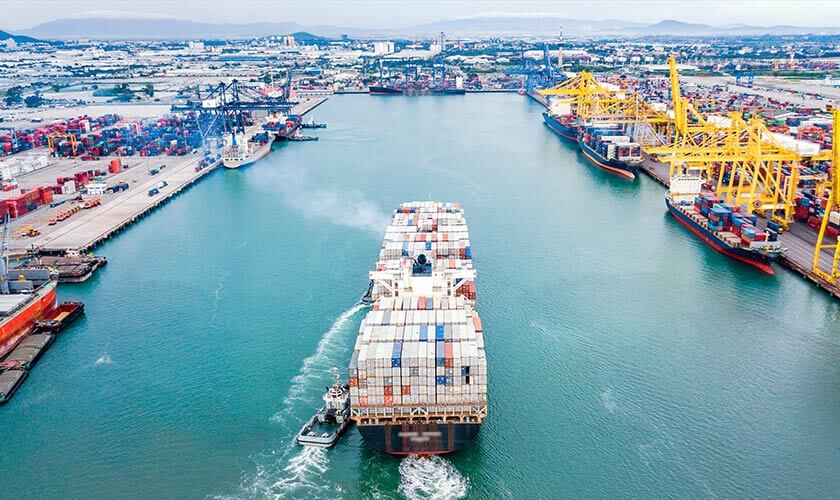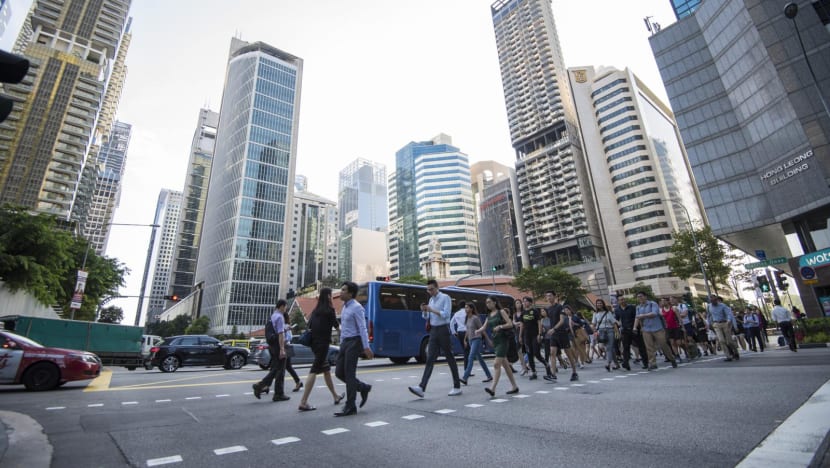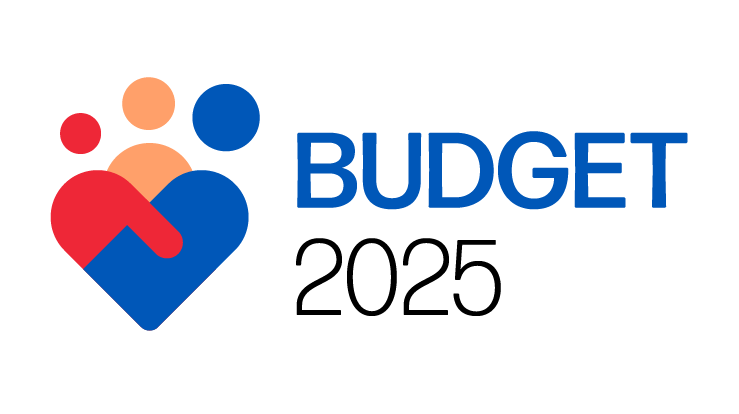Budget 2025: Strategies to Boost Singapore's Business Landscape
Key Points:
- Singapore Budget 2025, presented on February 18, 2025, by Prime Minister Lawrence Wong, focuses on boosting businesses through innovation, workforce development, sustainability, SME support, and global connectivity.
- It includes a 50% corporate income tax rebate for 2025, up to SGD 40,000, and an SGD 3 billion top-up to the National Productivity Fund for R&D.
- Surprisingly, it offers SGD 10,000 credit for companies with at least three resident employees for workforce transformation, starting in late 2026.
The Singapore Budget 2025 is a significant policy document aimed at enhancing the business environment in Singapore. It addresses current economic challenges like inflation and global uncertainty while seizing opportunities in technology and sustainability.
This article breaks down the key strategies and provides practical advice for businesses, including SMEs, listed companies, multinationals, and global firms based in Singapore.
Key Strategies and Measures:
The budget focuses on several areas to support businesses:
- Innovation and Technology: Investments in R&D, such as a SGD 1 billion refresh for biotech and semiconductors, and up to SGD 150 million for AI tools.
- Workforce Development: Programmes like the SkillsFuture Level-Up with SGD 4,000 credit for mid-career workers and a redesigned SGD 10,000 SkillsFuture Enterprise Credit for companies.
- Sustainability: SGD 5 billion for clean energy and schemes for electric vehicles, encouraging green practices.
- SME Support: Tax rebates and enhanced wage credits to reduce costs.
- Global Connectivity: SGD 5 billion for Changi Airport Terminal 5 and improved digital infrastructure like 5G.
These measures aim to make Singapore a more competitive and resilient business hub.

Detailed Analysis of Singapore Budget 2025 for Businesses:
The Singapore Budget 2025, presented on February 18, 2025, by Prime Minister and Minister for Finance Lawrence Wong, marks a pivotal moment for businesses in Singapore.
This analysis delves into the strategies outlined, providing a comprehensive overview for Singaporean business entrepreneurs, SMEs, public listed companies on the Singapore Exchange (SGX), multinationals, and global companies based in Singapore.
The budget, covering the fiscal year from April 2025 to March 2026, addresses economic challenges and opportunities, with a focus on innovation, workforce development, sustainability, SME support, and global connectivity.
Background and Economic Context:
The budget was delivered amidst a backdrop of global economic uncertainties, including inflation pressures following geopolitical tensions like the Russia-Ukraine war.
Singapore's GDP is expected to grow by 1-3% in 2025, with inflation averaging 1.5-2.5%, as noted in the budget statement (Budget 2025 Statement PDF).
This context underscores the need for robust business support to maintain competitiveness.

Key Focus Areas of the SG Budget 2025:
A. Innovation and Technology
The budget emphasises technological advancement as a driver of growth. Key measures include:
- A SGD 3 billion top-up to the National Productivity Fund to support R&D and innovation, enhancing business capabilities.
- A SGD 1 billion investment to refresh biotech and semiconductor R&D infrastructure, such as facilities at one-north biosciences and national semiconductor R&D fabrication.
- The Enterprise Compute Initiative, allocates up to SGD 150 million for AI tools and computing power via partnerships with major cloud service providers, as detailed in the budget annex.
These initiatives aim to foster a tech-savvy business environment, particularly benefiting tech companies and startups.
B. Workforce Development and Skills Upgrading
Workforce development is crucial for future economic readiness. The budget introduces several programs:
- The SkillsFuture Level-Up Programme offers mid-career Singaporeans aged 40+ an SGD 4,000 SkillsFuture Credit, with a training allowance of up to SGD 3,000/month for full-time courses, maxing at SGD 72,000 over 24 months.
- A part-time training allowance of SGD 300/month, starting early next year, supports flexible upskilling.
- The enhanced Workfare Skills Support Scheme extends to lower-wage workers from age 30, modeled after the Level-Up Programme.
- The SkillsFuture Workforce Development Grant consolidates existing schemes, simplifying applications and providing up to 70% funding for job redesign activities.
- A redesigned SkillsFuture Enterprise Credit operates similar to an online wallet, offering SGD 10,000 fresh credit for companies with at least three resident employees, available in the second half of 2026, lasting three years, with existing credit extended for readiness.
- Additional funding of SGD 200 million for NTUC Company Training Committees (CTCs) supports more transformation projects, expanded to employer-led training for formal qualifications.
- The SkillsFuture Jobseeker Support Scheme provides financial support up to SGD 6,000 over six months for job loss, starting in April 2025.
- The Senior Employment Credit (SEC) is extended to end-2026, with the qualifying age for the highest tier raised to 69 from 68, reimbursing up to 7% wages for workers aged 69+.
- CPF contribution rates for workers aged 55-65 increase by 1.5 percentage points in 2026, with a CPF Transition Offset for employers for another year.
- The Uplifting Employment Credit is extended to end-2028 for employers hiring ex-offenders, having supported 700 employers and 1,500 ex-offenders last year.
- Increased resources for overseas work postings and leadership development by agencies like Enterprise Singapore, MAS, and IMDA support Singaporeans gaining global experience.
These measures ensure businesses have access to a skilled and adaptable workforce, crucial for long-term growth.

C. Sustainability and Green Economy
Sustainability is a national priority, with implications for businesses:
- The Future Energy Fund is topped up by SGD 5 billion to secure clean power, including electricity imports (expecting one-third of demand met by 2035) and studies on nuclear energy like small modular reactors (SMRs), with agreements signed with the US on civil nuclear cooperation.
- The Heavy Vehicle Zero Emissions Scheme and Electric Heavy Vehicle Charger Grant encourage businesses, especially in logistics, to adopt electric heavy goods vehicles, with an Additional Flat Component (AFC) for electric vehicles phased in from January 2026 to January 2028 (SGD 250/year for heavy goods vehicles, SGD 190/year for minibuses, SGD 550/year for large buses).
- The commitment to net zero emissions by 2050, with a 2035 target of 45-50 million tonnes CO2 equivalent, and 100% cleaner energy vehicles by 2040, pushes businesses to align with green practices.
- The Climate Friendly Households Programme is enhanced, providing an additional SGD 100 worth of Climate Vouchers to all Singapore Citizen households, indirectly supporting businesses in sustainable product offerings.
While direct business incentives are limited, the broader push towards sustainability offers opportunities for environmentally conscious firms.

D. Supporting SMEs and Local Enterprises
SMEs receive targeted support to manage costs and grow:
- A 50% corporate income tax rebate for Year of Assessment 2025, with a minimum benefit of SGD 2,000 for active companies employing at least one local employee last year, capped at SGD 40,000 per company.
- The enhanced Progressive Wage Credit Scheme increases government co-funding to 40% in 2025 and 20% in 2026 (from 30% and 15% respectively), defraying labour costs.
- The Productivity Solutions Grant and SMEs Go Digital encourage the adoption of off-the-shelf solutions like AI-powered analytics and digital marketing tools.
- The Enterprise Compute Initiative, with up to SGD 150 million, partners eligible enterprises, including SMEs, with cloud providers for AI and computing support.
- The Global Founder Programme, launched by the Economic Development Board (EDB), attracts international founders to Singapore, fostering innovation.
- An SGD 1 billion Private Credit Growth Fund for high-growth enterprises, with details at the Committee of Supply (COS), and patient capital deployment from an existing SGD 1.8 billion over five years, support scaling up.
- Tax incentives for companies and fund managers listed on the Singapore Stock Exchange, as per the Equities Market Review Group, enhance capital access.
These measures are crucial for SMEs to navigate cost pressures and expand internationally.

E. Enhancing Singapore's Global Connectivity
Global connectivity is vital for trade and investment:
- Physical connectivity is enhanced through maritime developments, with Tuas Port recording new highs in vessel arrival tonnage, container throughput, and bunker sales, reinforcing Singapore's role as a leading maritime hub.
- Air connectivity sees an SGD 5 billion top-up to the Changi Airport Development Fund for Terminal 5, expanding capacity by over 50%, with government guarantees to lower borrowing costs, breaking ground in coming months.
- Digital connectivity achieves island-wide 5G coverage, with the Nationwide Broadband Network upgraded to deliver speeds up to 10 times faster, enhancing business operations.
These improvements position Singapore as a critical gateway for global trade and digital commerce.
Analysis of Specific Budget Measures:
A. Detailed Breakdown of Key Policies
The budget allocates significant resources to support businesses:
- Cost Pressures: A 50% corporate income tax rebate and enhanced wage credits address rising costs.
- Innovation: SGD 3 billion for the National Productivity Fund and SGD 1 billion for R&D infrastructure to drive technological growth.
- Workforce: SGD 200 million for CTCs and up to SGD 72,000 per worker in training allowances to ensure skill development.
- Sustainability: SGD 5 billion for clean energy and electric vehicle schemes to promote green practices.
- Global Connectivity: SGD 5 billion for Changi Terminal 5 and digital upgrades enhance trade capabilities.
B. Impact on Different Business Sectors
- Tech Sector: Benefits from R&D funding and AI initiatives, fostering innovation.
- Manufacturing and Logistics: Gains from electric vehicle (EV) schemes and global connectivity enhancements.
- Services Sector: Supported by workforce development for a skilled labour pool.
- Export-Oriented Firms: Leverages improved air and digital connectivity for international expansion.
C. Addressing Economic Challenges
The budget tackles inflation and global uncertainty through cost support measures like tax rebates and wage credits, ensuring business resilience amidst economic fluctuations.
Recommendations for Businesses:
A. Actionable Steps for Businesses
Businesses can take the following steps to leverage budget measures:
- Apply for Tax Rebates: Explore the 50% corporate income tax rebate and ensure eligibility for minimum SGD 2,000 support.
- Invest in R&D: Utilise the National Productivity Fund and Enterprise Compute Initiative for technological advancement.
- Upskill Workforce: Enroll in SkillsFuture programmes, leveraging credits and allowances for employee training.
- Adopt Sustainability: Implement green practices, such as electric vehicles, to align with national goals.
- Expand Globally: Use enhanced connectivity for international trade, supported by Changi Terminal 5 and 5G coverage.
B. Preparing for Future Economic Trends
- Stay Tech-Savvy: Keep abreast of AI and digital trends, leveraging government support for innovation.
- Foster Adaptability: Invest in continuous learning to prepare for economic shifts.
- Plan for Sustainability: Develop long-term strategies for environmental resilience, aligning with net-zero targets.
The Singapore Budget 2025 offers a comprehensive framework for businesses to thrive, addressing immediate cost pressures and long-term growth through innovation, workforce development, sustainability, SME support, and global connectivity.
By engaging with these initiatives, businesses can navigate challenges and seize opportunities, ensuring a prosperous future in Singapore's dynamic economy.
- Singapore Budget Summary
- Building Our Singapore Together: SG60 Highlights in Budget 2025
- Singapore Budget for Working Professionals
- Singapore Budget 2025: Disbursement Timeline for Working Professionals
- Singapore Budget 2025: 6 Key Support Measures for Working Adults with Elderly Parents
- Singapore Budget 2025: Disbursement Timeline for Business Owners and SMEs
- SG Budget 2025: How Much Will Parents Save on Their Kids (Monthly) with More Support Given
- SG Budget 2025: Fresh SGD 10,000 SkillsFuture Credit for SME Workforce Transformation
- SG Budget 2025: Accelerating Clean Living with EV Incentives in Singapore
- Singapore Budget 2025: Key Support Measures for Business Owners and SMEs
- Singapore Budget 2025: Strategic Levers for Business Growth and Innovation
- Singapore Budget 2025: Nuclear Energy Ambitions & ASEAN Integration – Global Trends and Local Realities
You can now be our community contributor and make a pitch to have your favourite personality be on our show.
Join our community group and drop us your insights on this topic.

-3.png?width=50&name=Square%20(2)-3.png)












Let us know what you think of this post